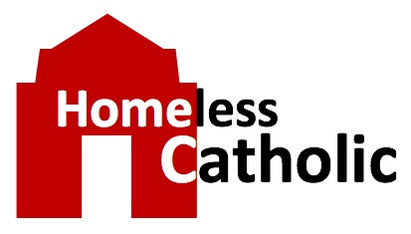12/10/15 Reflection - Family Tree
http://usccb.org/bible/readings/121015.cfm
Isaiah 41:13-20
Matthew 11:11-15
Some people get excited about their family tree. I suppose they imagine or hope themselves to be descendants of great heroes, notable scholars, bold explorers or even kings and queens. To my way of thinking, those people have probably suffered through too many viewings of the TV ad for Ancestry.com, and they assume that every family tree must have at least one branch that contains someone similar to that guy who photographed Lincoln at the Gettysburg address, as is the case in the Ancestry advertisement. If I were forced to draw up what I know of my family tree, it would be short and deficient in branches. For all I know, my family began with my grandparents, though I hear hints that there were real people further back. On the other hand, my spiritual ancestry holds far greater interest for me, so that's what I want to talk about.
My perception may be wrong, but it appears that most people, even most Christians, would cite the historical person, Jesus of Nazareth, as being the origin of Christianity. While it's true that the use of the word 'Christian' is directly tied to Jesus, the Christ, that truth is deceptive in that it obscures the roots of our faith which continue to live and flourish, even today.
John the Baptist is the subject of Jesus' compliments in this morning's reading. Truly, I say to you, among those born of women there has arisen no one greater than John the Baptist; yet he who is least in the kingdom of heaven is greater than he. The verse is particularly interesting in that we hear Jesus looking backward and forward in the same breath; and the verse points to the fact that Jesus is aware of the continuity in God's plan and the centrality of himself in that plan. Jesus is both the realization of the past and the anticipation of the future; and when we read between the lines of the words he speaks here it is evident that he is conscious of the fact that he himself is the keystone who holds both the past and the future in place even as it unfolds. He is the one who is the fulfillment of all God promised in the past; and, when he was "lifted up" will begin to draw all things to himself. John is the greatest of those who have been, says Jesus; but, to put his words in today's colloquial language, "you ain't seen nothin yet."
See John through the lens of Mary's life and you get a better idea of his importance. We bow in admiration at Mary's 'yes' to the will of the Father.
John deserves similar respect. He too said 'yes'. 'Yes' to living in the wilderness as the ancient prophets did; 'yes' to a garment of camel hair and a diet of locusts and wild honey just as the great Prophet Elijah had done; 'yes' to being the first prophet in Israel in four hundred years. 'Yes' to being that peculiar man who proclaims the word of God when no one had done so in such a long, long time.
In those days came John the Baptist, preaching in the wilderness of Judea, "Repent, * for the kingdom of heaven is at hand." For this is he who was spoken of by the prophet Isaiah when he said," The voice of one crying in the wilderness: Prepare the way of the Lord,make his paths straight." Now John wore a garment of camel's hair, and a leather belt around his waist; and his food was locusts and wild honey. (Matthew 3:1-4)
John was the Prophet who brought to its conclusion the age of Promise. Mary was the mother who commenced the age of Fulfillment. Yet neither was independent of the other. Both were part of the common thread with which God was weaving his tapestry.
These matters are of greater interest to me today than they were just a few weeks ago. Why? Because while I was at prayer in the cathedral of Sydney, Australia, reflecting on the ambiance of surrounding saints and scriptural depictions in the stained glass windows, I became cognizant of the depth of meaning in a truth I had long known.
We all know God's plan for creation had no beginning. As Paul says: "it is the plan of the mystery hidden for ages in God who created all things."
Likewise, we logically know that God didn't have to adjust his plan as it unfolded in time. We further know that there is no time for God. All is eternally present to him. All of these truths coalesced with saints and biblical scenes to make me understand in a more profound way: all God has ever done in accomplishing what we call 'the work of salvation' has been for me. When he brought the Hebrew slaves out of Egypt, he did that for me. When he parted the Red Sea, he did that for me. When he gave the Ten Commandments, he gave them for me. When he handed over the Promised Land, he did that for me. When he died on a cross, he did that for me.
Every word he spoke to his people, he spoke to me.
Every reprimand he delivered, he delivered to me.
Every caution proclaimed, he proclaimed to me.
Every blessing he promised, he promised to me.
In a new and amazing way I discovered what I had known for years: God loved me before I was born. He loved me before the world was made. And I am part of that thread with which he weaves his plan into an eternal tapestry, one in which Jesus is fully revealed and the face of God is seen.
